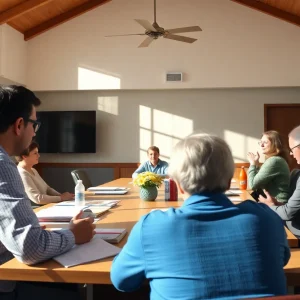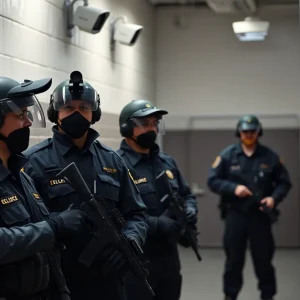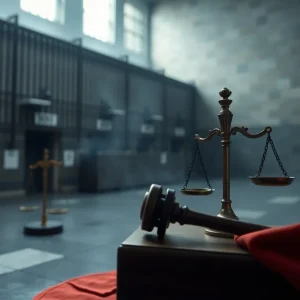Execution of Richard Moore Carried Out in South Carolina
Columbia, South Carolina – Richard Moore was executed by lethal injection on Friday evening, marking the state’s return to capital punishment after a 13-year hiatus. The execution took place at 6:24 p.m. local time following the U.S. Supreme Court’s decision to deny Moore’s request for a stay. The 59-year-old inmate was convicted of the murder of a convenience store clerk in 1999.
Background of the Case
Moore had been on death row for over two decades after being found guilty of killing James Mahoney during a robbery in Spartanburg County. Prosecutors stated that Moore unarmed at the time, took Mahoney’s handgun before being shot in the arm by the clerk. In the confrontation, Moore fired a fatal shot at Mahoney and fled with over $1,400 in cash.
Moore’s case has attracted significant attention due to claims that his trial jury was racially biased. He contended that two Black jurors were unfairly excluded from the jury, which was entirely White. Despite his assertions, state officials maintained that Moore had no valid basis for his claim and argued that his jury selection had already been challenged unsuccessfully in the past.
Final Moments and Statement
The execution proceeded even after requests for clemency were made to Governor Henry McMaster. McMaster denied the clemency petition, echoing previous statements where he expressed no intention to commute Moore’s death sentence. Reports indicated that more than 20 individuals, including jurors and the judge from his trial, petitioned the governor to spare Moore’s life.
In a final statement read by his attorney, Moore expressed deep remorse for his actions. He apologized to Mahoney’s family, stating, “I am deeply sorry for the pain and sorrow I caused you.” He also extended love to his family, highlighting the pride he felt for his children and grandchildren.
Legal and Racial Implications
Moore’s case raised significant questions regarding race and capital punishment in South Carolina. As noted, he was the last individual on death row whose conviction was secured by an all-White jury. The implications of this have sparked debate over the fairness of the justice system, particularly regarding the selection of jurors when race is a factor.
The U.S. Supreme Court had ruled in 1986 that a potential juror cannot be struck solely based on race. The state argued that the reasons for excluding the jurors were valid and not racially motivated, contending that they were due to their past criminal records. The court ultimately denied Moore’s request without further comment.
Public Sentiment and Future Capital Cases
The recent execution of Richard Moore is indicative of a broader conversation about the death penalty in the United States. Since the reinstatement of capital punishment in 1976, over 1,600 individuals have been executed, with African Americans disproportionately represented among the death row population. According to the latest data, 34% of those executed have been Black, a figure significantly higher than their 13% share of the U.S. population.
Governor McMaster has stated that the death penalty is a serious matter that requires careful consideration. In light of Moore’s execution, discussions are likely to continue regarding the processes involved in capital punishment and the racial dynamics at play in jury selection.


























